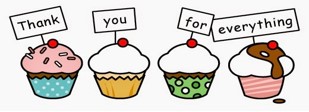|
In the U.S., April is not only associated with Easter bunnies but also income taxes. Many people dislike filing taxes, but at the same time, they are necessary. Most countries in the world rely on collected taxes to
fund various public needs, such as health services, infrastructure, food safety, science research, emergency funds, welfare programs, etc. However, every country handles its taxes differently.
People in the U.S. pay federal, state, and local taxes, which are usually due to Uncle Sam on April 15th. Uncle Sam is an informal reference to the American federal government, a so-called nickname. The agency that is
responsible for collecting taxes and enforcing tax laws in the U.S. is called the IRS (Internal Revenue Service). The government decides how much tax money citizens owe. The more you earn, the more taxes you pay, which is called a
progressive tax system.
Any money you make is considered income. A portion of federal and state taxes is commonly withheld by an employer directly from an employee�fs paycheck. In addition to having taxes withheld from a paycheck, Americans
need to file a tax return. Since a percentage of your money is automatically withdrawn from your pay, you might even be entitled to getting a refund if you have paid more than required by law. It is something people like when it
comes to filing taxes.
Unlike federal taxes, state taxes are not imposed by all states. Local taxes are usually levied at sales. Sales tax is a consumption tax, collected on money spent on goods and services. There are also property taxes.
If you own a home, the local government makes you responsible for paying a certain percentage of its market value. The revenue from taxes goes to fund education, construction of roads, and other needs of the community.
Filing taxes is mandatory. If you don�ft pay taxes owed, you will be charged a penalty, or you may even go to jail. That�fs why money management is crucial. If you plan wisely, tax season won�ft seem so dreadful.
|







